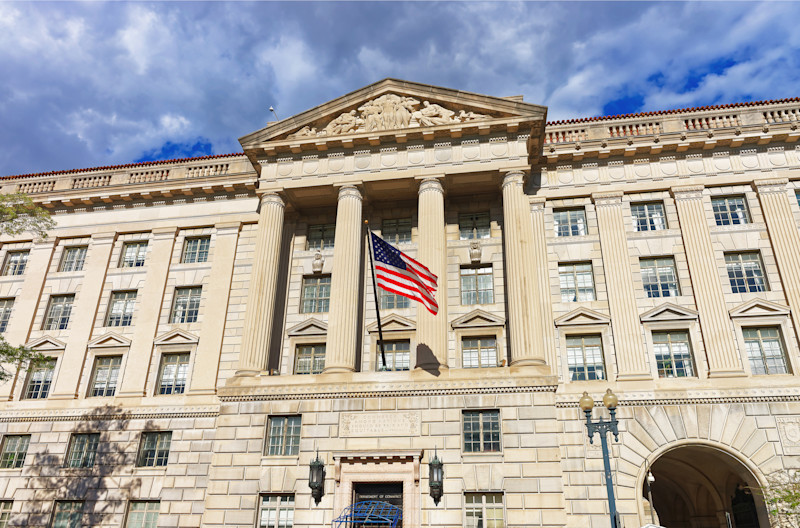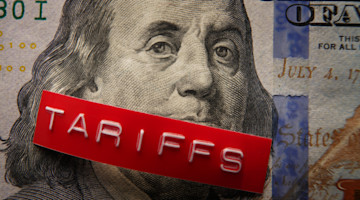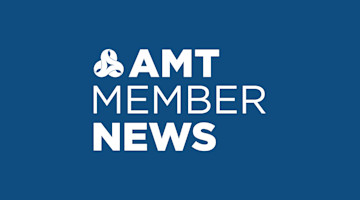On Aug. 19, the Commerce Department’s Bureau of Industry and Security added 407 product categories of steel and aluminum derivatives to the list of items subject to the 50% steel and aluminum tariffs.
This includes Harmonized Tariff Schedule (HTS) code 8457.10.00, which refers to Machining Centers for Working Metal.
It DOES NOT appear to include other machine tool-related codes like 8456.11.10, which refers to laser, EDMs, and waterjet machines for working metal. and HTS 8458 which refers to lathes for removing metal.
It DOES NOT include derivatives made abroad from steel that was “melted and poured” in the United States, or aluminum that was “smelted and cast” in the United States if the importer can provide documentation to that effect.
Bottom line: Even if your finished machining center’s normal duty rate is modest, Section 232 will add 50% on the metal content. The normal tariff rate applies to the portion of the product that is not steel or aluminum.
Government representatives have reiterated to AMT that data is needed from the industry to fully assess the impact. AMT is in contact with officials at the Department of Commerce, NIST, and USTR as well as congressional staff on this issue. All have requested additional data on the impact to make the case for why these tariffs are detrimental to President Donald Trump's end goals of building a strong domestic industry and increasing national security. Please review the recommendations below for making your voice heard on this issue.
Background
Section 232 tariffs on steel and aluminum, along with some derivative products, were originally instituted on imports during Trump’s first term. In February 2025, Trump amended those tariffs to 25% on steel and aluminum articles and some derivatives from all countries.
Effective June 4, 2025, tariff rates doubled to 50% for steel, aluminum, and their derivative products. Only the United Kingdom is exempt.
Derivative products are finished goods made of steel/aluminum. The Federal Register confirms that duties for new derivative lines are calculated on steel/aluminum content in each product. The more steel/aluminum material in each product, the more you will pay.
Make Your Voice Heard
Monitor Federal Register notices for any expansions or carve-outs in derivative lists. According to the BIS announcement, the next window for public comment to submit product inclusion requests is in September. Companies should pay close attention to the filings – the administration accepted nearly (if not all) of the requests earlier this year.
Engage your Congressional representative: The U.S. government wants to hear from you on the tariff impact. Reach out to your senators and congressperson to express your opinion on the matter. AMT can help you connect with your representative. Share your experiences and the impact the tariffs will have on your business.
Mention that the National Association of Manufacturers has proposed a Manufacturing Investment Accelerator Program to mitigate the cost of the tariffs. It recommends that the administration utilize existing authorities to issue licenses that act as a manufacturing tariff speed pass. This will allow manufacturers to import critical inputs without the added cost of tariffs, accelerating the industry’s efforts to invest and grow here at home. Second, when manufacturers do pay tariffs on must-use, must-import critical inputs, the administration should provide investment accelerator rebates to offset tariff costs for dollars spent to sustain or expand manufacturing investments in the United States. AMT supports this proposal.
Take AMT’s tariff survey: Your voice matters. By completing AMT’s tariff survey, you ensure that the real impact of tariffs on your business is represented in Washington as we advocate on your behalf. We work with other manufacturing associations and relevant agency and congressional staff to amplify your concerns at the federal level – add your perspective today.
For more information, please contact me, Amber Thomas, at athomas@AMTonline.org.
Learn More at MTForecast
Attend AMT’s MTForecast, Oct. 15-17, in Chicago, Illinois, featuring David Skillman, a partner at K&L Gates who is an expert on tax and trade policy and who previously contributed to major trade agreements like the USMCA. A regular advocate before Congress, the White House, and federal agencies, Skillman will guide manufacturers in examining how these changes may impact their businesses and in shaping strategies to stay competitive in an evolving global landscape.
MTForecast also features economists and industry experts who will detail how the tariffs impact manufacturing and key customer segments like automotive, aerospace, and contract manufacturers. In addition to sales forecasts, the event features special sessions and workshops on marketing, scenario planning, preparing your business for disruption, and developing stronger strategies amid uncertainty.
“Our clients’ established trade expectations are shifting on a near daily basis,” says Skillman. “In addition to further changes to the steel and aluminum tariffs, we expect additional changes to the reciprocal tariffs as court cases are decided and deals are detailed with our trading partners, to the China tariffs, and to the national security tariffs as additional goods and sectors are included. It pays to be vigilant.”






